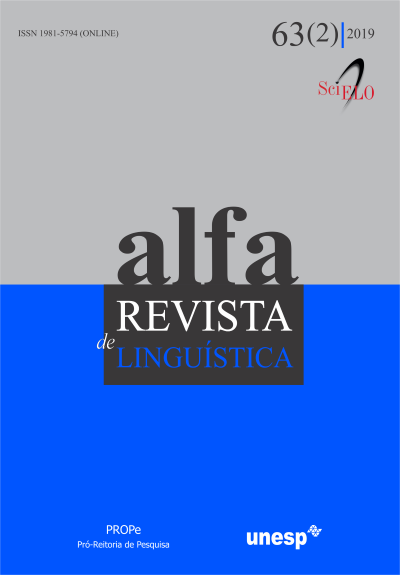Language policy in Oceania: in the frontiers of colonization and globalization
DOI:
https://doi.org/10.1590/1981-5794-1909-4Keywords:
Language policy, Oceania, Linguistic colonization, Bilingualism, Languages in contact,Abstract
In this article, we present an overview of the language policies adopted in the Oceanian countries and territories after analysis of legislation, plans and government programs. Representing 22.9% of all languages in the world — the vast majority spoken by few people and endangered —, this continent suffered an intense linguistic colonization marked by the instrumentalisation of indigenous languages by missionaries and by the subsequent imposition of European languages as the only ones allowed during European and American imperialism. Such a scenario has broadened the complex linguistic situation in Oceania and has imposed on the countries of the region many challenges about languages to adopt after their independences, in view of the many local problems, which caused the Oceanian peoples to seek diverse political solutions and to become frontier peoples — frontiers of languages, frontiers of meanings, frontiers of memories, frontiers between colonizer languages, indigenous languages and immigrant languages.
Downloads
Downloads
Published
How to Cite
Issue
Section
License
Manuscripts accepted for publication and published are property of Alfa: Revista de Linguística. It is forbidden the full or partial submission of the manuscript to any other journal. Authors are solely responsible for the article's content. Translation into another language without written permission from the Editor advised by the Editorial Board is prohibited.

